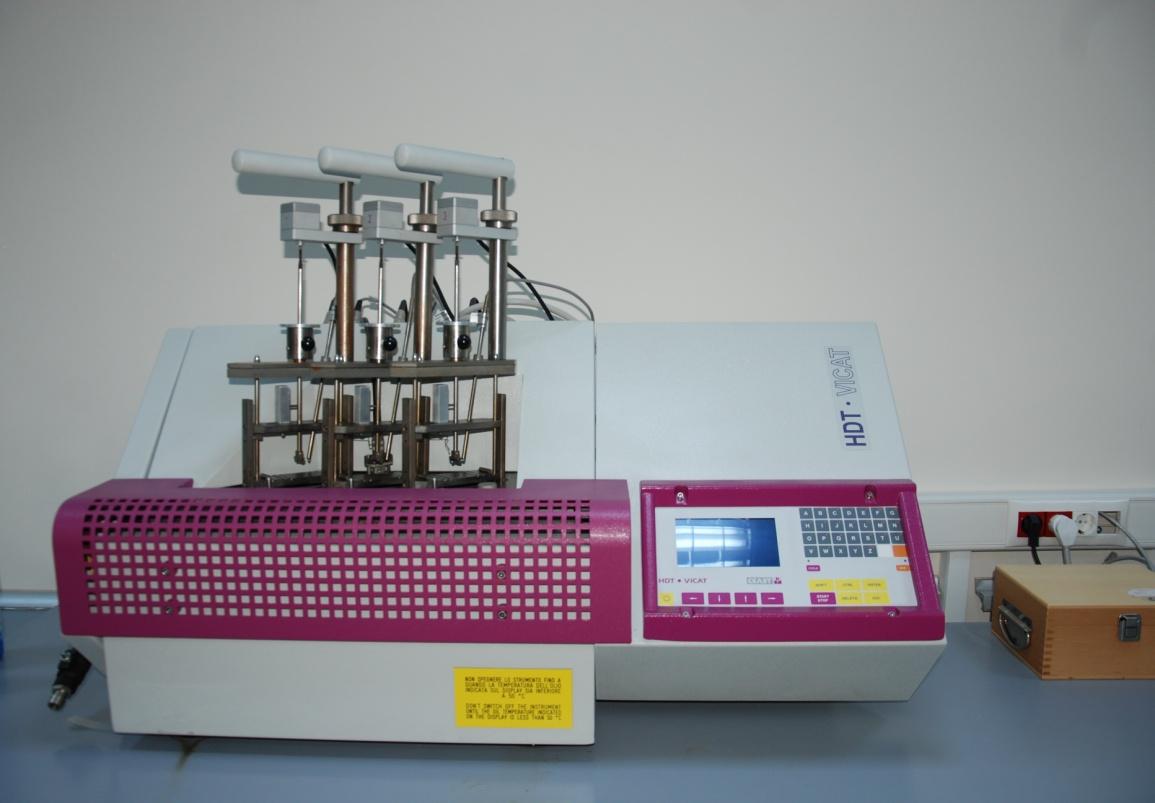Izod-Charpy Impact Strength Test
The test is used to determine the resistance of materials against impact. The tests are in compliance with international standards for Izod and Charpy impact test methods with energy values ranging from 0.5 to 50 Joules. Test results are used to evaluate the relative toughness or impact toughness of the material.


Melt Flow Index
The Melt Flow Tester is used for the determination of Mass Melt Flow Rate (MFR) and Volumetric Melt Flow Rate (MVR) of thermoplastic and pure thermoplastic materials according to ISO 1133, ASTM D1238 and other relevant norms. The test results in a Mass Melt Flow Rate (MFR) calculated from the amount of material flowing in 10 minutes.
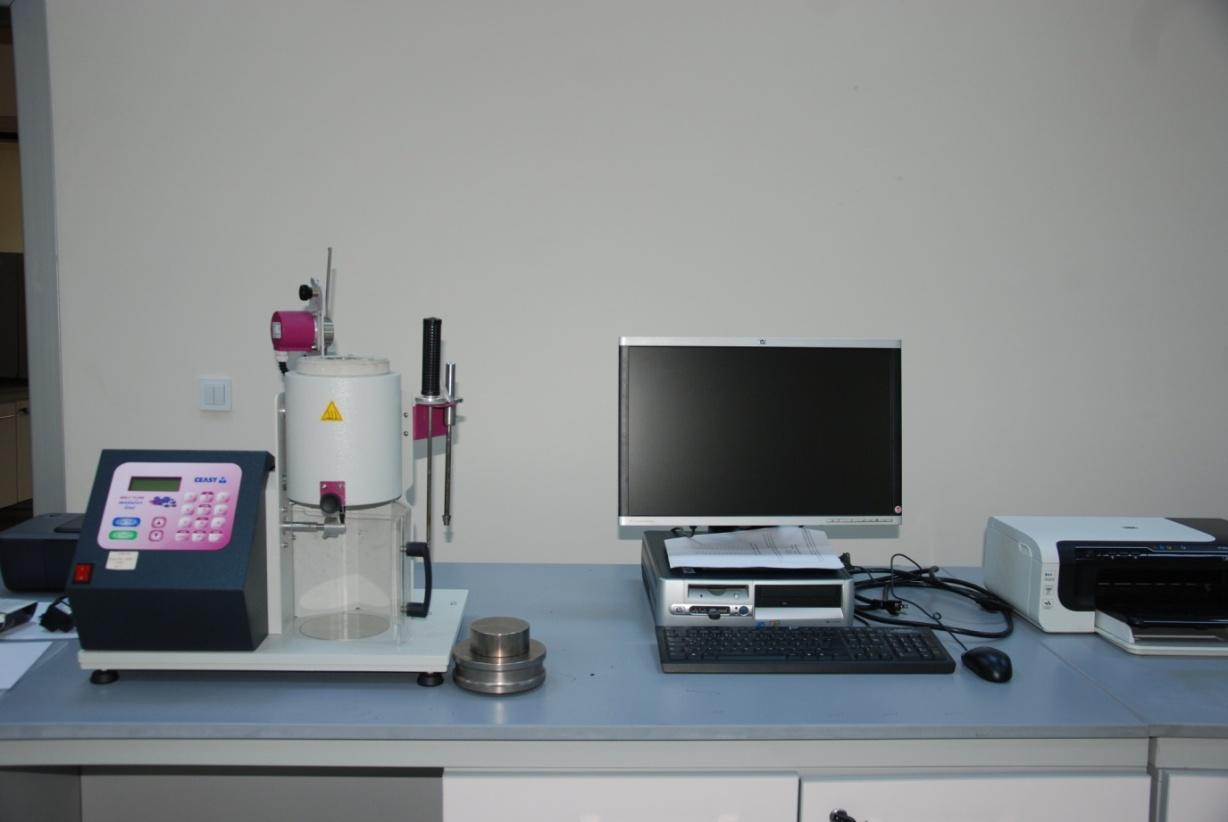
Dynamic Mechanic Analysis
DMA measures the viscoelastic properties of materials using a load motor that increases and decreases at a specified frequency on the materials. The high-precision LVDT sensor determines the relative position of the bar on the sample. The dynamic viscoelastic properties of the materials, for example E 'and E' ', can be calculated from the values σ0, ∈0 and δ on the stress and strain waveforms.
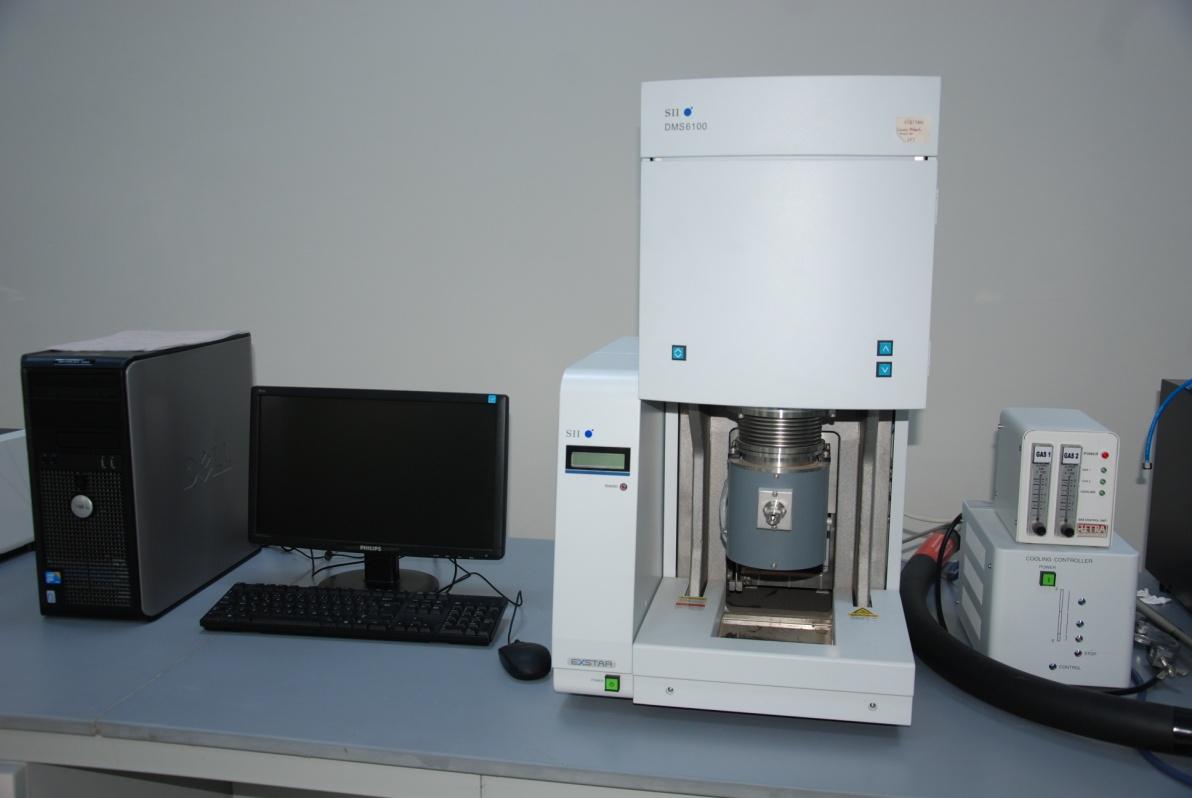
Tension-Compression-Three Point Bending Test Device
Tensile testing is one of the most common test methods used to determine the mechanical properties of materials. A suitable tensile test specimen is placed on the universal test machine and force (load) is applied to the specimen. In the tensile test, the amount of elongation in the material is measured using the extensometer and the applied force is measured using the load cell and the stress-strain curve is obtained by using the measured load and elongation values. Tensile strength and elastic modulus values of materials can be determined by tensile test.
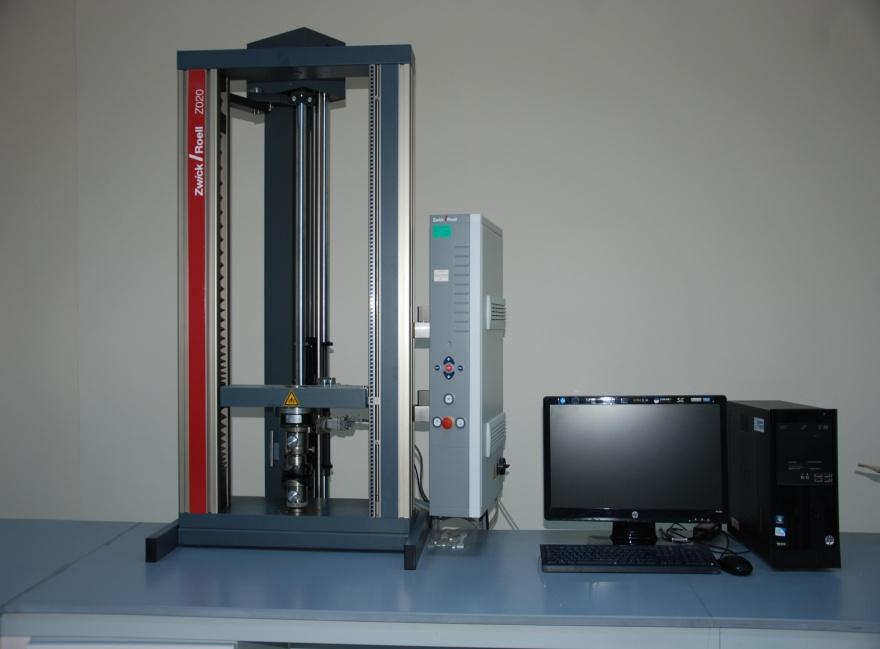
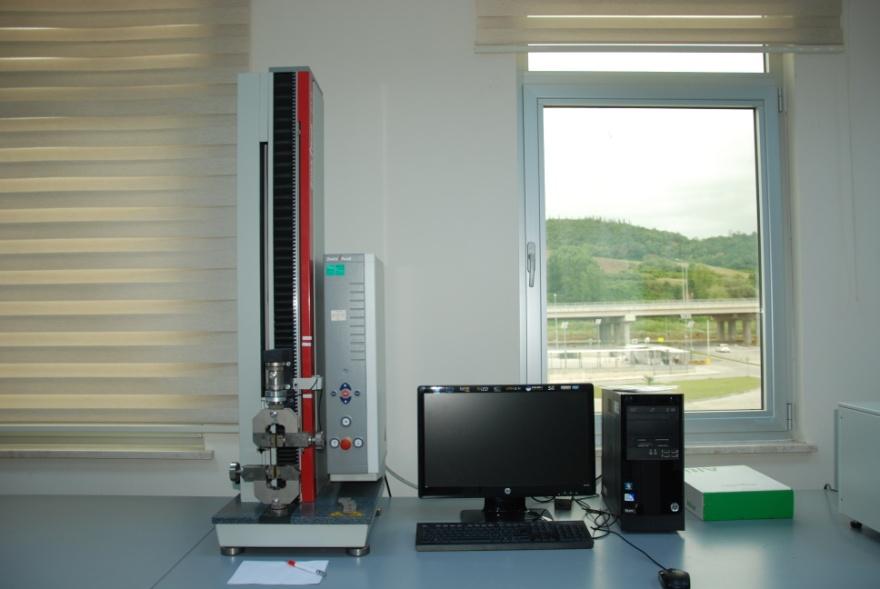
Abrasion Test Device
It is used to determine the abrasion resistance of rubber-elastomer materials and meets ISO 4649 Standard. Abrasion tests within this standard are carried out on materials that can be worn during use. The measured values are important parameters for the wear behavior of rubber and elastomers during use.
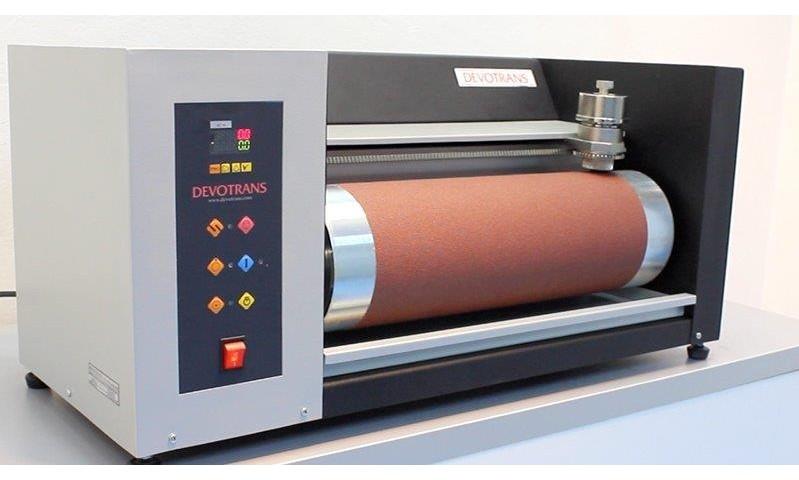
Hardness Tester (Shore A, D)
In this embodiment, the extent to which the hardness tip penetrates the material is measured. The plunger tip is driven by a spring-loaded system with features specified by international norms. The greater the hardness of the material, the lower the depth of plunge; but the force applied will be as high. Different forms of hardness (plunge) tips and spring characterizations are designed in accordance with the Shore hardness of different scales. The most common Shore Hardness Scales are Shore A and D. The Shore Scale hardness tests range from soft elastomer (Shore A) to rigid thermoplastic materials (Shore D).
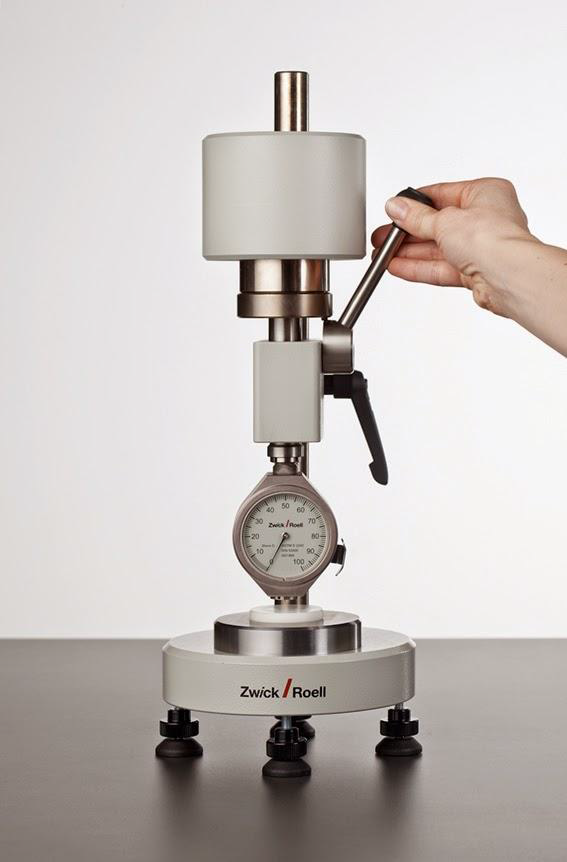
Universal Hardness Tester (Rockwell, Brinell, Vickers)
ISO 2039-2 and ASTM D785 norms Plastic materials for different Rockwell hardness scales have been determined. In contrast to the Ball Indentation hardness tests, which are calculated from the plunging depth of the hardness tip under a constant force, the plunging depth is obtained at a predetermined preload in Rockwell hardness tests. There are hardness tips with different properties suitable for different Rockwell scales.
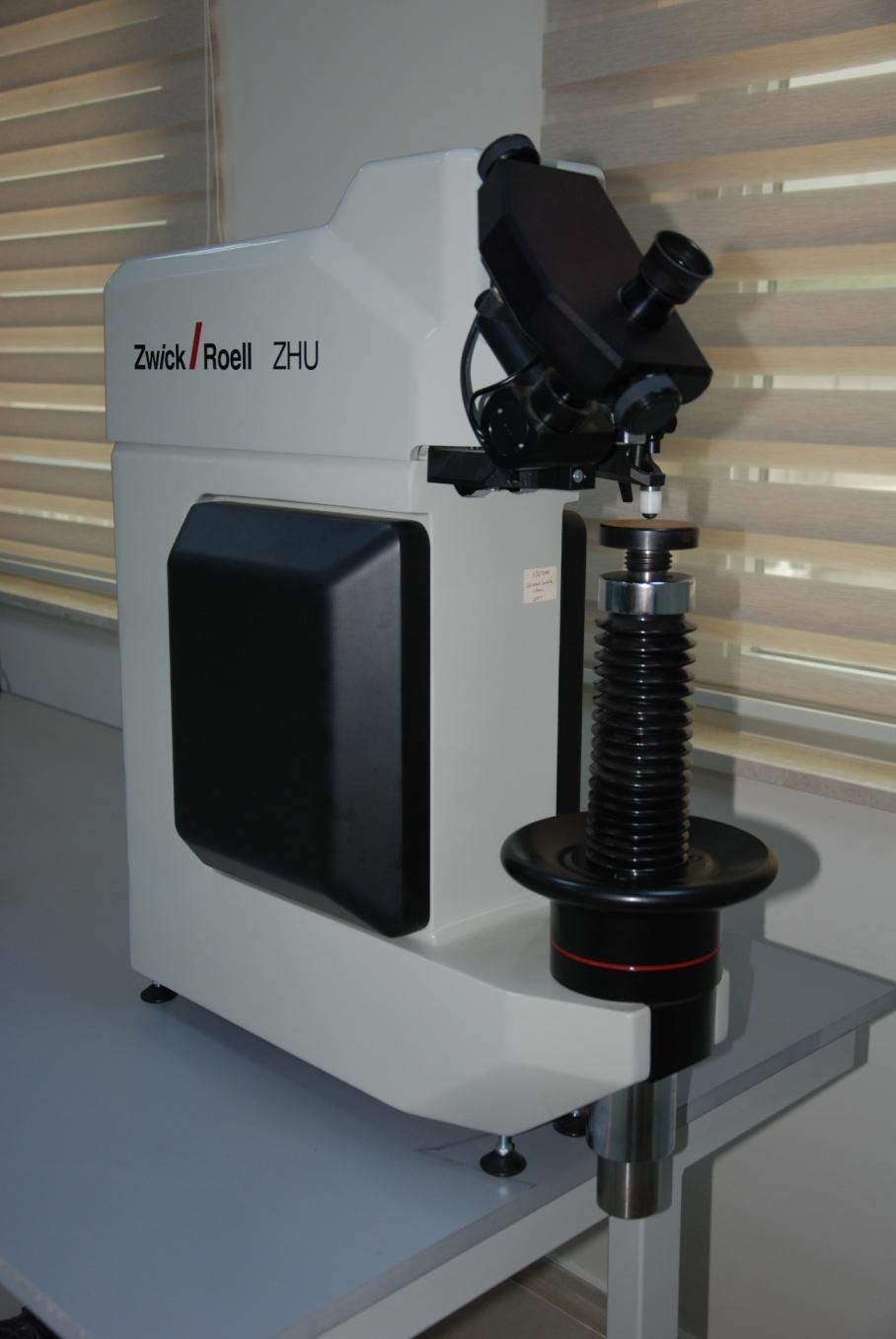
HDT-Vicat
Plastic and thermoplastic materials are heat sensitive. HDT and Vicat tests detect deviations of these materials in their original state under a certain tension and temperature determined by norms. Vicat Softening Temperature (VYS) tests are performed according to ISO 306 and ASTM D1525 standards for determination of melting point temperature of products. In the VYS test, the temperature at which a plunger with a circular cross-section of 1 mm2 takes a distance of 1 mm under a load of 10 N or 50 N is determined.
Another test application is the Determination of Bending Temperature Under Load (HDT) test. this test is performed by applying a bending force to a prismatic sample at a constant temperature increase. The bending temperature under load is the temperature at which the sample reaches the bending deformation point specified in the standard. HDT tests are generally preferred to compare different types of materials. HDT tests are performed according to ISO 75 and ASTM D648 standards.
